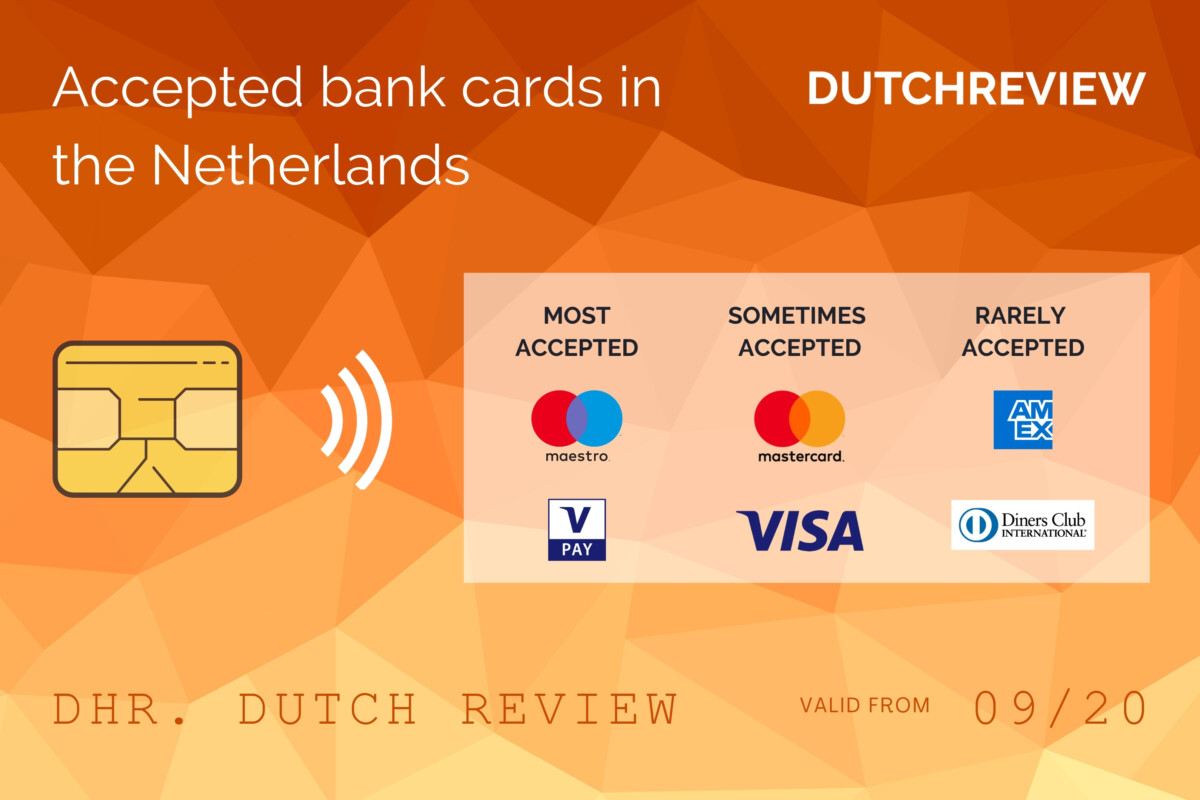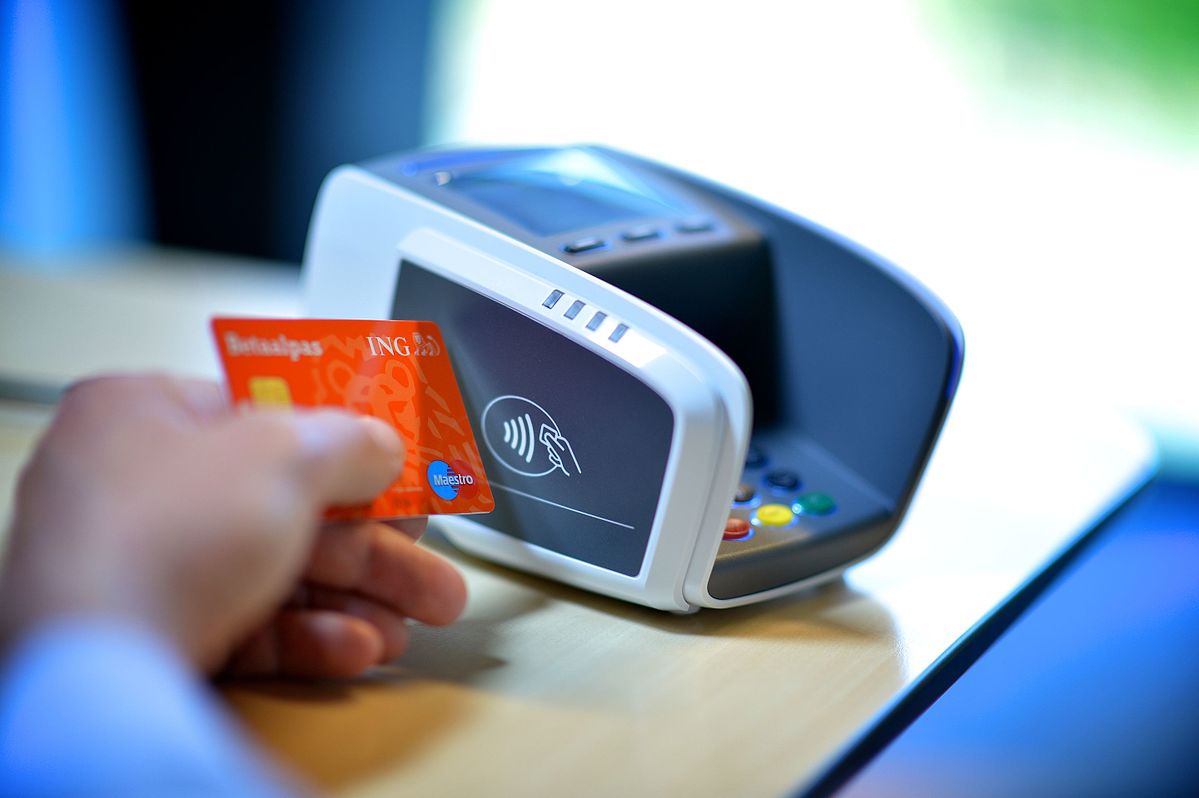Dutch culture tends to be pretty opposed to credit cards and debt, but why is that exactly? Since there’s never just one easy answer to this type of question, here are seven of the top possibilities for why Dutchies don’t do debt.
If you’ve visited the Netherlands, you’ve likely run into problems trying to pay for something. You probably came to the country expecting to pay a few foreign transaction fees, and maybe to withdraw some cash for smaller purchases.
READ MORE | Transaction declined: why don’t my bank cards work in the Netherlands?
What you certainly didn’t expect was to end up red-faced with a whole basket of cheese and stroopwafels you couldn’t pay for because your card was declined at a large chain grocery store.
(Rest assured, we’ve all been there. 😉)
Paying in the Netherlands
The Netherlands is a special place. It has special architecture, special landscapes, special shoes — and special payment systems.
The country has its own unique banking system, largely revolving around Maestro and iDEAL.
Basically, the Maestro bank card is a must-have in stores, and iDEAL is the only method for many online payments (which requires that Dutch bank account).
Since they don’t just hand these out upon arrival at the airport, travellers often find themselves in a payment pickle.
READ MORE | Save like a pro (the Dutch) with this money-saving life hack
See, your Visa, whether it’s debit or credit, will be treated as credit.

This gets confusing when the grocery store employee tells you they only accept debit, while refusing to accept your (foreign) debit card. 🙃
What they’re saying is that they only take the Dutch version of a debit card — generally the Debit Mastercard or Maestro.
Good to know: With Maestro and iDeal on the way out, you soon won’t have to deal with them any more!
What’s so bad about credit cards?
So what are travellers supposed to do? Why the resistance to credit cards? Why don’t the Dutch just doe normaal like the rest of the world?
Quite simply, the Dutch tend to be very debt-averse. They don’t place much trust or value in the credit system in general, and many hold strong beliefs in opposition to it.
READ MORE | The best credit cards for expats in the Netherlands
For a bit of context, here are the facts at a glance:
- 55% of Dutch consumers hold a credit card.
- Of those cardholders, 62% only use their credit card when abroad.
- Of the Dutchies who do use their credit card in the Netherlands, it’s usually reserved for online purchases and hotels.
- 30% of Dutch people WITH a credit card don’t consider it a safe and reliable means of payment.
- The Dutch are largely satisfied with credit card acceptance in the country. Only 18% feel that the amount of credit card payment points is insufficient.
Why the Dutch don’t like debt: 7 theories
So where did this debt-aversion come from, anyway? Well, truthfully, we can’t say for sure.
But we can dive into some of the leading theories. The following are some of the popular beliefs held in the Netherlands about debt culture and credit cards. 👇
1. Debt means guilt
Bring up a conversation about debt in the Netherlands, and the first response you’ll hear is that the word “debt” in Dutch is schuld, which also translates to “guilt”.
Great significance is placed on this small, guttural word in Dutch culture.
READ MORE | Dutch savings accounts: banks with the best interest rates
Schuld isn’t your run-of-the-mill homonym.
Unlike how kussen means both “to kiss” and “pillow,” schuld’s dual meaning holds deep cultural weight — for the Dutch, you can’t have debt without guilt.
2. Dutch culture is frugal
There’s no sense in beating around the bush, the Dutch have a reputation for being… well, thrifty. They’re known for keeping their hard-earned euros close to their chest.
READ MORE | 14 downright stingy things Dutch people do
It only makes sense that this particularly pennywise culture would also be cautious around debt.
Spending money they don’t have
But even though a credit card purchase doesn’t necessarily have to transfer to debt (it’s as simple as a few clicks between accounts, of course), there’s a cultural stigma against it in the Netherlands.

Credit card use is often viewed as irresponsible or foolish.
If the Dutch want something, they buy it with money directly from their bank account, even if it means waiting until they’ve saved enough.
Cost to businesses
Merchants pay more for credit card transactions — generally around 1.8% of the purchase amount.
While this isn’t exclusive to the Netherlands, the merchants’ aversion toward paying those processing fees is a bit more uniquely Dutch.
After all, schuld has Germanic etymological roots, and the same reluctance toward debt is thought to be shared in Germany.
However, unlike the Netherlands, credit cards are widely accepted there.
But, just like their breakfast sprinkles and swear words, the Dutch do it differently.
Despite the amount of international tourism, many businesses in the Netherlands opt to save on transaction fees by limiting the types of payment they accept.
3. Credit card companies operate differently in the Netherlands
If you’re coming to the Netherlands from a more debt-accepting culture and looking to get a Dutch credit card, you’ll probably be a bit disappointed.
By design, they’re less appealing to the consumer.
Limited options
In the Netherlands, options are far fewer and much less enticing. You won’t find the same variety of rewards programs, travel perks, or discounts at your favourite stores.
Perhaps if there were more kortingen (discounts) associated with Dutch credit cards, we wouldn’t be having this discussion at all.
Interest? Not interested
Few credit card options in the Netherlands are cost-free. Interest rates and annual fees are not appealing to anyone, particularly the most spendthrift.
Dutch credit cards typically offer an APR (annual percentage rate) of around 14%, which is the maximum rate set by the government.
Comparatively, that’s not bad! But if there’s even a whiff of unnecessary money to be paid, you’ve already lost a Dutchie’s attention.

Never mind that credit cards offer consumer protection for online purchases or the peace of mind that if an emergency comes up, money won’t be an issue.
Mention a €30 annual fee, and your Dutchie will be cycling away faster than you can say, “helaas pindakaas“.
Advertising laws
The Dutch government wants to protect its citizens from dangerous consumer debt.
So by law, lenders are required to include a credit warning when advertising for credit services.
They have to be clear about all the details, costs, and interest rates.
Also, in the true nature of Dutch straightforwardness, ads need to include a specific warning statement and symbol like this one:

Less accessible
If you do want to get a credit card in the Netherlands, despite all the deterrents, don’t get your hopes up too soon.
Not just anyone can qualify for one. You’ll have to pass a background check with the BKR (the Dutch credit registration office).
READ MORE | How to open a Dutch bank account: ultimate guide
Credit scores in the Netherlands are different, too. Unlike in other countries, you don’t need to “build” your credit by borrowing money to prove you can pay it back.
Credit card approval does, however, require you to prove that you have a steady income and earn enough money.
Generally, you’ll need to be able to show that your employment is secure, which, naturally, can be a barrier for new expats.
Your credit can also be negatively impacted if you’ve held temporary or short-term jobs.
A little advice: if you’re moving to the Netherlands and want a credit card for international purchases or emergencies, make your life easier and hold onto your credit cards from back home.
4. Religion
The Dutch aversion to debt can also be traced back centuries to its roots in Calvinism in the 16th century.
Calvinist belief emphasised a strong work ethic, tolerance, egalitarianism, straightforwardness, and of course, frugality.
Not coincidentally, these are some of the prominent ideals that shape Dutch society today.
Their very practical, sober relationship with money is less about being stingy and more about being principled.
READ MORE | Religion in the Netherlands: a perspective on the different religions in the country
Calvinism is geared toward living a simple life and condemns the flaunting of wealth.
It would be entirely indecent to make extravagant purchases, especially without the means to pay in full. While the religion didn’t stick, its way of life certainly did.
5. Dutch cultural identity and social norms
If it hasn’t been spelt out already, credit card use and living in debt go against social norms in the Netherlands.
It’s just not the Dutch way. Quality of life is emphasised over material items.

Where the financial systems in other countries will allow you to purchase what you want, whether or not you can actually afford it, the financial system in the Netherlands aims to keep people from spending what they don’t have.
If you don’t have money in your bank account or wallet, you don’t get to buy your biertje (beer).
It’s something they start learning about as kids — many Dutch schools even implement financial literacy programs to teach kids about responsible spending from a young age.
6. Historical economic differences
While credit cards spread like wildfire in the US from the 50s onward, things happened much more slowly in the Netherlands.
Credit cards didn’t come into the picture in the Netherlands until 1967, two decades after the US — and even then, they never picked up much steam.
So while the US was busy establishing its “buy now, pay later” culture, the Netherlands was still steadfast in its “save now, buy later” mindset, which they’ve managed to hold onto to this day.
READ MORE | Investing in the Netherlands: 7 great apps for getting into stocks
Now remember, we’re talking theories here.
Australia adopted the credit card even later (1974), and they currently have the highest household debt to GDP (Gross Domestic Product) ratio, so this idea is up for question.
7. The Dutch compare themselves to other countries
The last point is a bit of a strange one but must be included because every conversation around debt will ultimately circle back to it.
Why do the Dutch disapprove of credit cards and debt? Because of the US.
The US is often used as an example for arguments against credit card use because the relationship with personal debt is the extreme opposite there. And indeed, it’s quite tragic.
At any rate, the Dutch didn’t feel the need to learn from their own mistakes on this one.
They’ve seen what the ugly side of debt can look like, and they’re steering their trade ships clear.
Hold up — but the Netherlands is riddled with schuld
Now, here’s a curveball for you: the Netherlands ranks seventh-highest in the world for private debt.
What?? The whole wide world. For a country so averse to debt, they’ve certainly gotten themselves deep into it.
To be fair, in the Netherlands, personal debt is largely linked to home mortgages.
In the Dutch fiscal system, interest paid on a mortgage can be subtracted from taxable income. Higher mortgage loans mean lower taxes (is that a korting I smell?).
READ MORE | What is the Dutch National Mortgage Guarantee (NHG)?
Recent data also indicates that, despite their reluctance, credit card use is on the rise in the country.
Travel and online subscription services are the main culprits behind the shift. Nobody’s surprised by that — Dutchies do love their travel, and everybody likes Netflix.
When it comes to the Dutch and debt, the more we learn, the more we wonder. But if there’s one thing that holds, it’s that they sure don’t like it.
What do you think about the debt culture in the Netherlands? Tell us in the comments below!


As a Dutch person I’d like to point out there is nothing Dutch about the maestro payment system. You’ll find it accepted all over Europe and most of the globe , with the exception of the US, where that piece of the payment market is taken up by Mastercard debit.
As for the comparison with German credit card acceptance , it should be mentioned that there are a lot of places in Germany that still only accept cash and no cards at all. The statics that were used probably only looked at the stores that accept cards to begin with.
If dutch don’t like debt, why is than the average student loan in the Netherlands -30000 euro?
Is it really €30000 ? Where did you get this data from?
The average student debt in the Netherlands is €13700 according to CBS. Compared to the US €33,000 this is still much lower
This is simply not true. My wife heads a large university here and 90% of the students have zero tuition debt. In fact, it’s mostly the international students here that take out loans in their home countries.
Are there any difficulties with withdrawing money from an ATM machine with a Visa debit card?
Same, unless You have a pin % for Your Credit card. Best to ensure that Your Pin is current, before You travel to the NL’s..
Very VERY inconvenient to say the least. People are not children. Let them make their own financial decisions.
Why would we do so if there’s no good in it and there can come a lot of trouble from it? We see it in the US and we saw it with the Toeslagenaffaire again. Getting into debt gets one more problems than one benefits from it.
If you can’t afford to save up for something, you can’t afford to pay off a loan for it.
Whenever I go to visit the Netherlands, I call my credit card companies in advance to tell them about my travel plans. A lot of stores do accept my CC’s and otherwise, I simply withdraw money from ATMs which are available everywhere. I travel an average every two years and stay for two or three months.
Just a small correction, the dutch have little debts. because of our mandatory pension plans.
While there is a lot of “mortgage” debt, at the same time there is a humongous amound of pension money
This guarantees a good income for every pensioned dutchman. rich or poor. as the poor cannot opt-out of it when money is tight.
This solves a lot of societal issues for elderly, they are in fact the richest people on average in the country.
This 7 page document is a nightmare to view on a cell phone. Please keep it simple in the future
Embora a Holanda seja um pais desenvolvido, seu sitema bancario é muito atrazado.
Another reason for the Dutch having problems with debt can be found in the value of self autonomity. The Dutch are traders by nature, farmers by nature. And many farmers have the trading for profit mentality as well. Historically Dutch traders and farmers don’t have to look to anybody to sustain them. Resulting in freedom and pride. Running in debt makes you less free, cause the lendor might in the future threaten your freedom, property and thus your autonomy. Debt can also cause a business to grow faster, but maybe in some Dutch thinking the risk of losing autonomy is just not worth it. Preferring to grow business organicly, slow but steady. As a Dutch entrepreneur I more or less did the same. Of course the value of autonomy is partially particular to my own personality, but I’d argue in percentage there are more Dutch debt averse entrepreneurs then f.e. British entrepreneurs.
Credit card company’s are filthy rich because they take a piece of every transaction. Why would Dutchies add to that, when they have a perfectly running system without intermediates?
There’s a lot of nonsense in this article, particularly when it comes to card acceptance. In actual fact, cards are the preferred way of payment. What this article gets wrong is mixing up the Dutch aversion to debt (which is true, except if you’re a farmer and use the Rabobank) with the use of cards. It sounds like you can’t use card payments in the Netherlands unless it’s a local card, and that’s a load of rubbish.
You see, the Dutch don’t like spending money, but they absolutely love getting it. So if you want to pay by card, not a problem. Wilt u er een tasje bij?
The suggestion that it’s easier to pay by card in Germany is even more ludicrous. If there’s one nation in Europe where they love cash, it’s Germany.
Last December, I visited my native Netherlands for the first time in three years and literally paid EVERYWHERE with either my phone (Google Pay linked to Revolut) or a foreign Visa Electron card. The credit card would have worked as well, but we don’t need credit (even though it’s automatically paid at the end of the month).
The three times I paid cash were all taxi drivers, for pretty obvious reasons.
You mean gierig 😂😂😂 (greedy). In my country of origin, we have a saying: ‘The Dutchman picks up what the Scott has thrown away’ and after 20 years of living in the Netherlands, I can confirm.
I completely agree with the Dutch onthis topic. And the last point is extremely valid – the US citizens are poor, living pay-check to pay-check, economic slaves. The Dutch are smart enough to know this. Also, there are alternatives to credit cards for online and abroad purchases – fintechs (Wise and Revolut for example).